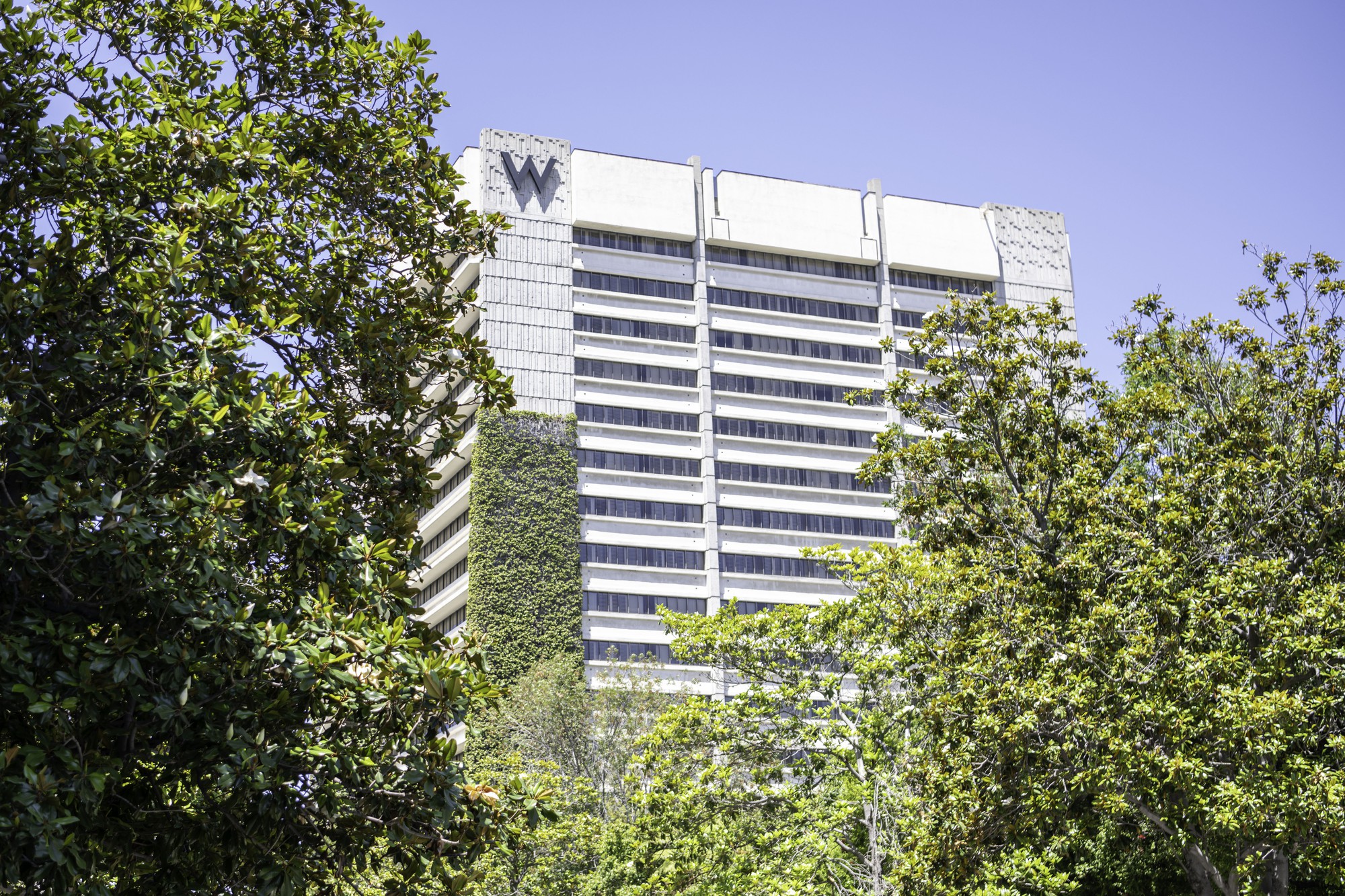Gov. Newsom signs bills to raise minimum wages for fast food, health care workers

In-N-Out Burger on Gayley Avenue is pictured. Gov. Gavin Newsom approved Assembly Bill 1228 and Senate Bill 525, which will raise the hourly minimum wages for fast-food and health care workers respectively in California. (Jeremy Chen/Daily Bruin senior staff)
By Dylan Tzung
Nov. 17, 2023 11:44 a.m.
This post was updated Nov. 17 at 7:21 p.m.
Gov. Gavin Newsom recently approved two bills raising the hourly minimum wages for fast food and health care workers in California.
Assembly Bill 1228 – introduced by state assemblymember Chris Holden, who represents Pasadena and parts of San Bernardino County, and signed into law by Newsom on Sept. 28 – will increase the minimum wage for the state’s fast-food workers to $20 per hour April 1.
AB 1228 also establishes a Fast Food Council within the Department of Industrial Relations to implement minimum health, safety and employment standards for fast food workers.
With the current statewide hourly minimum pay resting at $15.50, California has one of the highest pay floors across the United States. However, Chris Tilly, a professor of urban planning and sociology, said $15 an hour no longer provides much purchasing power in the state.
California fast food workers are, on average, making just over $16 per hour, which means shifting to the new $20 minimum wage will have huge impacts for workers, Tilly said.
“When you look at higher education students, that crushing debt that people have to take on to get a college degree – they certainly are sorely in need of higher levels of pay,” Tilly said.
Associated Students UCLA employs more than 1,500 students every year, with many students working for the on-campus fast-food chains such as Panda Express, Carl’s Jr. and Subway.
ASUCLA is waiting on additional legislation to determine AB 1228’s applicability to on-campus restaurants, said Michelle Moyer, director of business, compliance and legal affairs at ASUCLA, in an emailed statement. She said Holden announced plans to introduce legislation clarifying which types of restaurants AB 1228 will apply to.
Anna Kim, a first-year political science student, and employee at Taco Bell in Ackerman Union, said she expects the minimum wage increase will help lessen the financial troubles for families and students like herself. Kim added that the hourly increase would also afford her more flexibility in her budgeting decisions.
“$20 would be awesome,” Kim said. “It would mean that I have more flexibility with the number of hours I work each week.”
Tilly said the establishment of the Fast Food Council in AB 1228 is an exciting experiment in sectoral bargaining. The council, which brings together representatives of different interests and parties in the fast food sector, allows for workers to have a voice despite ongoing unionization challenges, Tilly said.
He added that, if successful, the Fast Food Council may be replicable across other sectors coping with similar barriers to unionization.
The Fast Food Council will have nine voting members, including representatives of the fast food restaurant industry, restaurant owners, restaurant employees, advocates for restaurant employees and one member of the public. The Fast Food Council will also have two nonvoting members including one representative from the Department of Industrial Relations and another from the Governor’s Office of Business and Economic Development.
The purpose of the Fast Food Council is to establish minimum standards for working conditions in the fast food sector, including wages, working hours and any other conditions deemed necessary for ensuring the health and welfare of fast food workers. The Council will develop and propose employment, health and safety standards and provide direction to state agencies, according to AB 1228.
Less than a month after signing AB 1228, Newsom approved Senate Bill 525 on Oct. 13, which establishes scheduled wage increases for workers in the health care industry. Introduced by state senator María Elena Durazo, who represents Central and East Los Angeles, the bill specifies five different minimum wage schedules for health care facilities in California to gradually reach the new $25 minimum wage. All health care facilities are scheduled to comply with the new minimum by June 1, 2028.
Tilly said because only a small minority of health care workers are unionized, SB 525 is an important measure for helping the workforce keep in step with the rising cost of living.
“It’s potentially a win-win to increase wages,” Tilly said. “You’ve got enough people on the job, adequate staffing, better patient care and a more livable wage for people in the health care sector.”
Just one of the six academic health centers overseen by the UC Health system, UCLA Health employs 32,000 people across four hospitals and more than 200 clinics.
“The University of California believes in paying fair and competitive compensation and will adjust wages to ensure compliance with SB 525 by the bill’s June 1, 2024 deadline,” UCLA Health said in an emailed statement.
Tilly said there are UCLA Health workers that fall below the $25 per hour benchmark who will benefit from the legislation, especially because they live and work in one of the country’s most expensive cities.
He added that labor rights activism, namely the Fight for $15 campaign, which began in 2012, was instrumental in laying the necessary groundwork for approval of both AB 1228 and SB 525. Public discussions of living wage increased awareness of the difficulties faced by low wage workers, Tilly said.



